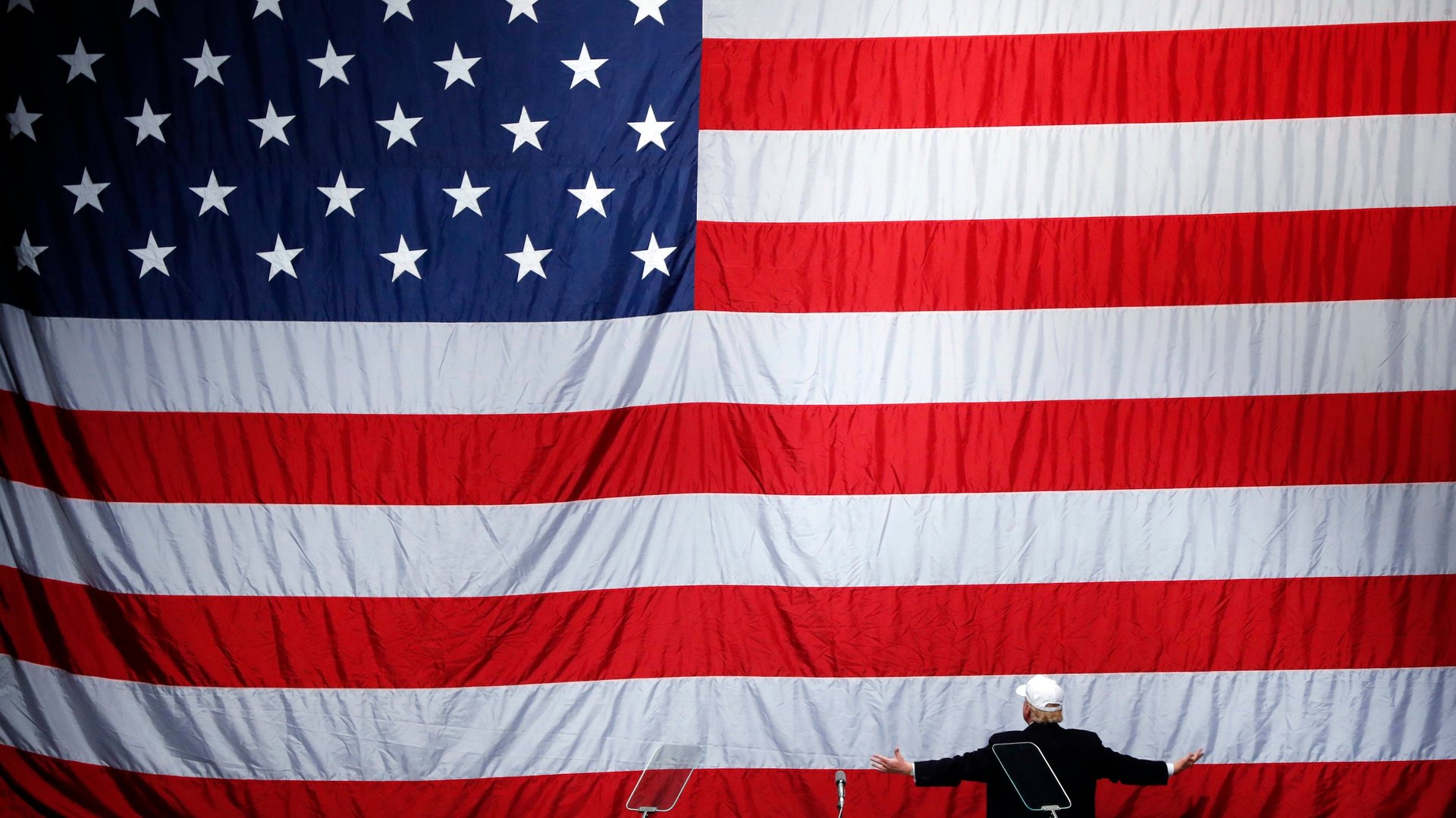Donald Trump is prepared to make this election last forever
US republican presidential nominee Donald Trump has vacillated between two world views this week: the election is rigged against him; the election is not-so rigged against him.


US republican presidential nominee Donald Trump has vacillated between two world views this week: the election is rigged against him; the election is not-so rigged against him.
He dips into the latter when things are going his way: for example, when FBI director James Comey suggested the book may not be closed on Hillary Clinton’s private-server usage. “It may not be as rigged as I thought, right?” Trump told assembled supporters in New Hampshire on Oct. 27, after a letter Comey wrote to members of Congress alerted of a batch of emails that appeared “pertinent” to the FBI’s investigation of Clinton’s server over the summer.
But it doesn’t take much for Trump to flip. As soon as Comey clarified to Congress, “we have not changed our conclusions that we expressed in July with respect to secretary Clinton,” Trump reverted to talk of a “rigged” system.
“Right now, [Clinton] is being protected by a rigged system. It’s a totally rigged system,” he told supporters in Michigan on Nov. 6.
This rhetoric suggests, short of a landslide in favor of Democratic presidential nominee Hillary Clinton’s favor, or the unlikely event of an undisputed Trump victory, the Trump campaign is ready to make this election cycle last as long as possible.
“Unless this is a blowout for Clinton, he’s not going away quietly,” Peter Shafer, a polling expert and partner at research firm Brunswick Insight, tells Quartz. “Trump is known for legal maneuvering that furthers his agenda … if he doesn’t feel that the rules are leaning toward where he wants to go, he will sue.”
Shafer, who polled for Gallup during the 2000 US presidential election, notes Trump may see Bush v. Gore as precedent for challenging the electoral college in court. “There are a lot of parallels to the environment in 2000. There are two somewhat lackluster campaigns, two candidates Americans aren’t all that jazzed up about, but close national polls all the way up to election day,” Shafer says.
Indeed, the current electoral college map presents more paths to a victory for Clinton than for Trump, but the popular vote could be much closer. That would give the Trump campaign grounds to seek out any and all opportunities to challenge a loss. According to Shafer, if Hillary takes the electoral college by a margin of 70 points or less (270 of the 538 total possible points are required to win), and the popular vote is close in a number of key battleground states, Trump’s campaign could file suits claiming voter fraud, forcing recounts in a number of jurisdictions and certification of the results—meaning no clear winner until electors convene to confirm the college count on Dec. 19.
“If he sees blood in the water in some of these places, he’ll definitely go after it,” Shafer says.
But just how much of the fight left in the Trump campaign is born out of a real desire to take the Oval Office? Ever since the start of his campaign, observers have floated the possibility that Trump doesn’t truly want to be president, or carry out any of the concomitant duties, so much as he enjoys the attention of a national campaign.
On the other hand, acquiescence isn’t exactly in line with the Trump 2016 brand. Stubbornly refusing to accept the outcome of Tuesday night’s vote, while perpetuating the idea of a “rigged system,” very much is. And what better way to lay the foundation for Trump TV than contriving a spectacle that will dominate the news cycle for an extra month beyond Election Day?
If that’s the case, this election cycle might very well live on indefinitely.